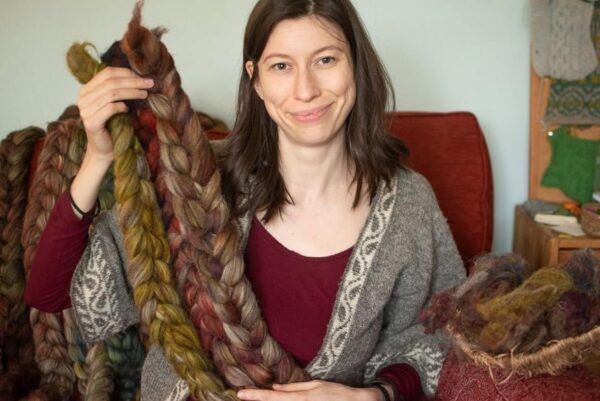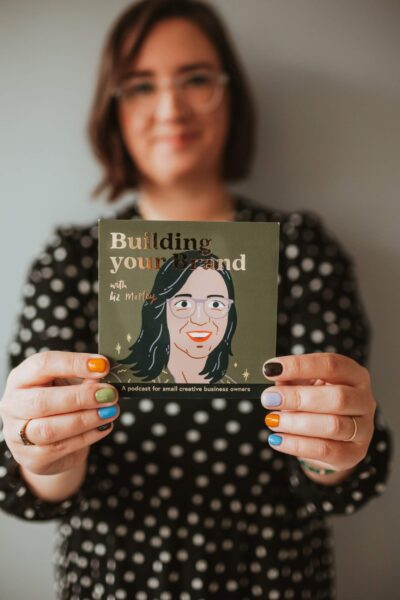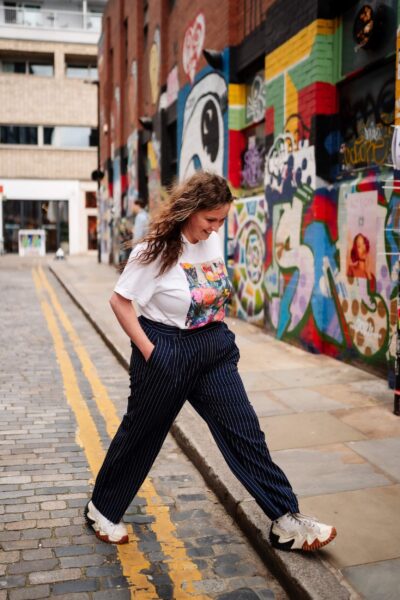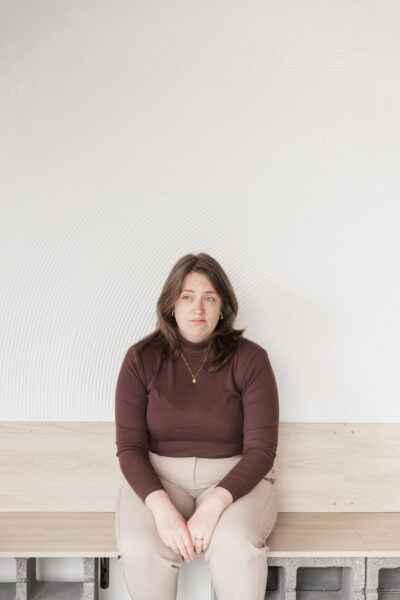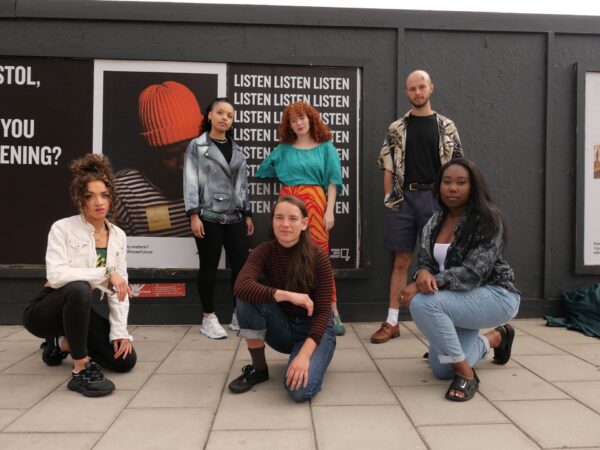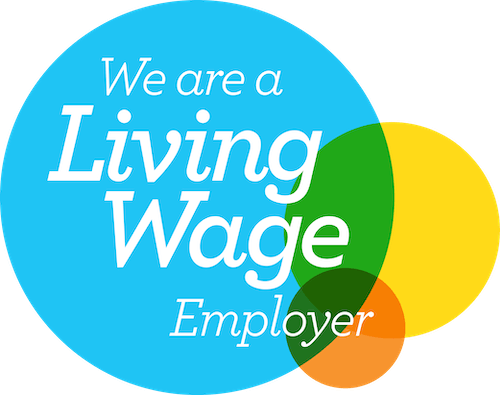It makes a lot of sense for businesses, big and small, to want to be a part of Pride season. It’s basically a months-long worldwide festival, supported by a very enticing Pink Pound – a kind-of-kitschy name for the purchasing power of the LGBTQIA+ community.
A lot of money gets spent at Pride – outfits to wear, tickets to buy, coolers to stock, flags to drape, picnics to plan, etc. And there are definitely mixed feelings about the commercialisation and commodification of a season of rebellion and acceptance, so it becomes tricky when businesses, whether well-meaning or not, get involved.
People are waking up to the motives behind businesses getting involved with Pride; you don’t need to look far to find articles wondering at the morality of businesses who rainbow-ify their logo in June, and come February are silent on queer issues (a practice known colloquially as rainbow-washing).
At best, these superficial acts can leave a bad taste in the communities’ collective mouth; at worst it’s a blatant cash grab, and in the end could be a detriment to the groups they purport to serve and uplift. But there are genuine businesses out there who love and support queer people. So how do we find the balance between rainbow-washing and authentic shows of support, and what are one delightful queer’s thoughts on it?
This is part 1 of a series on businesses and their role in supporting the LGBTQIA+ community beyond rainbow-washing their image. In part 1, I’ll give you a little background, and then have a ponder about the state of Pride and rainbow-ification.
In part 2, we’ll look a little more specifically at what small businesses can do to help support the queer community, without fear of tokenisation or rainbow-washing.
About queer ol’ me
I’m Adam, Marketing Executive and general administrator at Studio Cotton, a small business website design studio based in Bristol, UK (also Aime’s cousin) . I’m also, also a big ol’ queer* kid, which hopefully puts me in a pretty alright position to write about Pride and the things small businesses can do to support the LGBTQIA+ people in their lives.
I’ve been going to Prides across the UK for nearly 10 years now, performing at some, just turning up and sitting in a field for others and have seen the best, worst and drunkest that Pride has to offer.
(Bristol Pride is my favourite ~natch~, but London Pride and Brighton Pride will always have a special place in my little gay heart – I wore my first leather vest at Brighton Pride and got the worst sunburn of my life because I was young and dumb and didn’t wear sunscreen. Absolutely worth every ouchie).
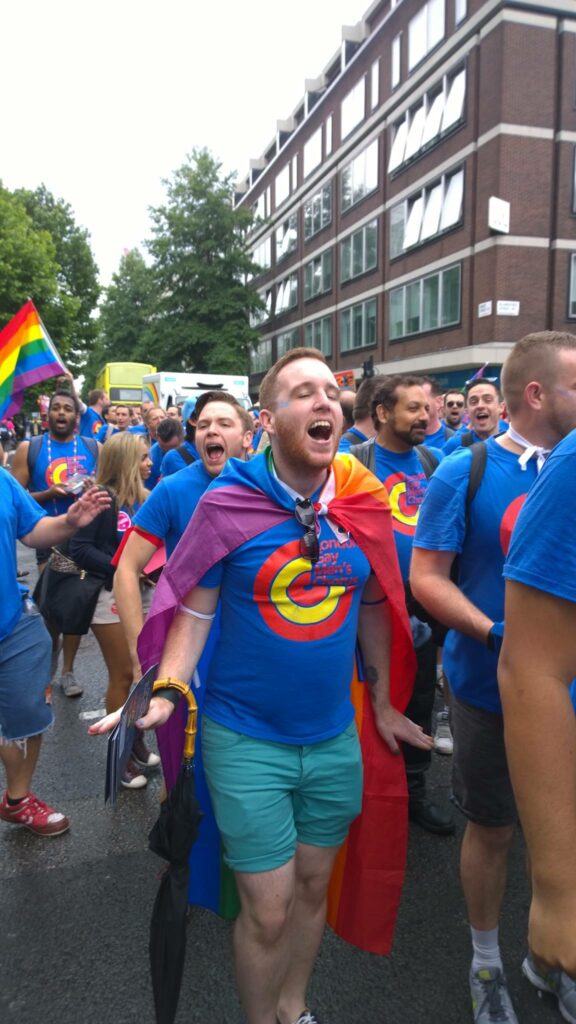
This year Pride will be extra special, as it’s the first one many of us have been able to celebrate in person in a long time. Us queers are ready to let loose and celebrate each other in the way only we know how, with love and fun and so, so much glitter. There is this sense of love and joy and freedom at Pride that we don’t often get in our day-to-day lives.
Pride is a chance to stand tall and express ourselves fully, in the company of people who uplift us and will stand shoulder to shoulder, at our side. It will probably come as no surprise then, a lot of emotions crop up when any businesses get involved with Pride.
Disclaimer: I am a singular person, and as such I do not speak for the whole of the LGBTQIA+ community. Everything in this article is written with the best of intentions, but please do get in touch if you think there are any gaps that might need addressing.
*There is some discussion around the use of queer as a catch-all for the LGBTQIA+ community, but it is a term that is generally accepted and is a term I indentify with, so I will use it intermittently in this series. Please do get in touch with me at [email protected], if you have thoughts on this, or any of the rest of this blog, I’m always happy to chat!
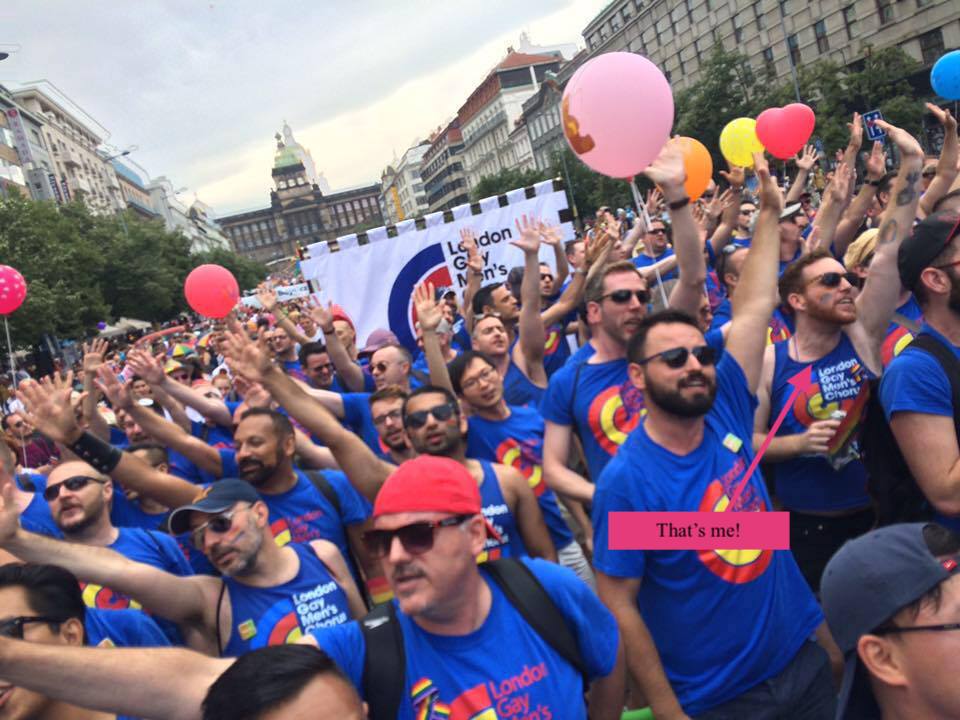
Big businesses at Pride – why they make me a little uncomfortable
I guess we’ve danced around it enough, huh? Time to get sunk in. What do I think of businesses at Pride? I guess it’s a little complicated, at least from my point of view.
The socialist-hippie-hermit in me wonders if we’d be better off without businesses at Pride altogether. That would certainly do away with uncomfortable moments like an arms manufacturer being the lead sponsor of Surrey Pride in 2019.
But then part of me – the focused-on-where-we-are-now part – can’t help but look at how much Pride has changed in recent years.
A short history of Pride
In 1999, when I started to wonder if I was different from other boys, most companies were doing everything they could to keep their distance from anything queer. The thought of mainstream companies donating money or having a float at Pride would have been laughable.
30 years earlier, in 1969, in America, the Stonewall riots happened in New York City, a now-famous push towards legalising homosexuality, where queer people, notably trans people of colour, fought back against police brutality. A year later, the first Pride – at the time known as the Gay Liberation march – took place on the streets of New York City.
England had started to decriminalise homosexuality in 1967, although until 2003 gay men in the UK were only allowed to get together in the privacy of their home, with no more than two people. Anything more and they could be arrested. No cheeky throuples allowed!
Lesbians weren’t mentioned in law until the 2003 equality act. The Gender Recognition Act of 2004 allowed people to legally change their gender, but trans rights are still an ongoing fight in the UK.
So to see big companies loudly shouting out the praise of their employees, who until even recently they could have had arrested or fired for being out of the closet? There is a lot of solace there, a feeling of peace, even alongside the hesitation that comes up when marching with large companies. “At least we’re finally getting recognition, if nothing else” is the way a lot of us have taken to thinking about it.
The discomfort of businesses at Pride
But with that recognition lies discomfort. Big companies like banks, that would have turned away queer people a few years before, or police, who so harshly hunted gay men until very recently, now had big floats and tons of free advertising while they marched through our parade.
And that sticks like a fish bone in the throat. We want, of course, for any queer people that work for Barclays or the Met or any large organisation to be able to celebrate – and celebrate loudly – but it can be really difficult to stomach standing next to previously oppressive organisations and still enjoy our freedom and our march.
Small businesses at Pride
You may have noticed that I focused on big businesses at Pride and that’s really because big businesses are the worst offenders of rainbow-washing. I have a slightly different relationship with small businesses at Pride. There can be a level of authenticity and relatability that come from a small business who choose to rainbow-up for Pride, that warm my queer little heart.
Mila Plants is a great example of a small business that is authentically supportive of the LGBTQIA+ community. They are openly queer-loving, flying the progress flag in the windows of both their shops, and are very clear about their respect of their workers identities and pronouns. Indeed, you really needn’t look further for a great example of a supportive small business.
I mentioned earlier that Bristol Pride is my favourite UK Pride, and I think that’s because the focus was not on companies involved in the march, but the people who wanted to celebrate themselves. The festival afterwards was about music and joy and celebration (there were some stalls to buy things, but they were never the focus, you could move freely and gayly without ever setting foot near advertisements or merch).
It gave Pride the feeling of a festival, a place to celebrate being queer and celebrate, not an event largely geared at advertisements for big companies. It speaks to the root of Pride, and the gay liberation that so many queer people throughout history have worked for.
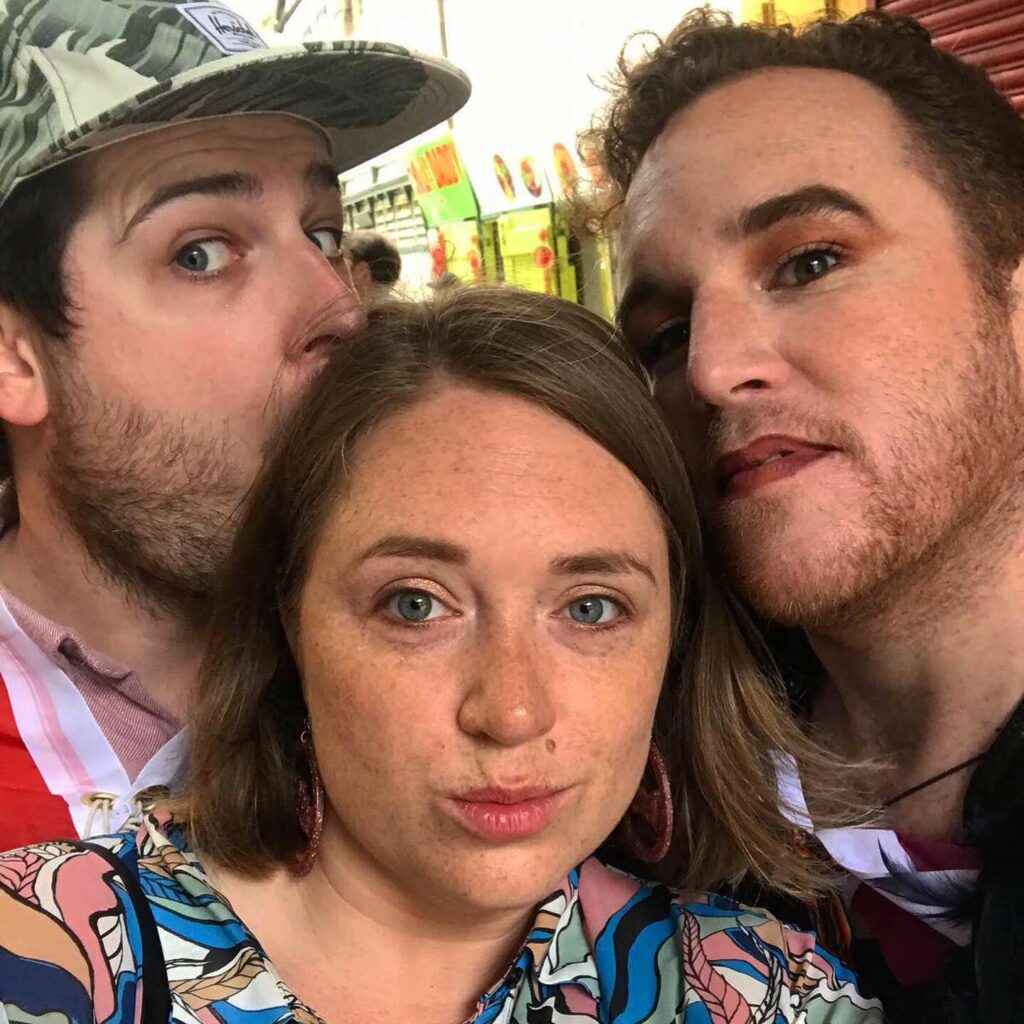
Big or small businesses at Pride – a complication that we can appreciate
Currently, businesses getting involved with Pride is always going to be a little complicated – though I think whenever money is involved with anything, it’s going to be a little complicated. As long as companies are there besides queer people to celebrate and empower the community, then it will be a complication many of us can live with and appreciate.
In part 2 of this series, we’ll take a look at what small businesses can do to celebrate and encourage the LGBTQIA+ community, no rainbow-washing involved. And if you find yourself wondering what queer icons like Beyoncé, Lizzo and Ru Paul use for their websites, check out Aime’s post on celebrity CMSs – she’s still upset that this silly one didn’t get more attention!

